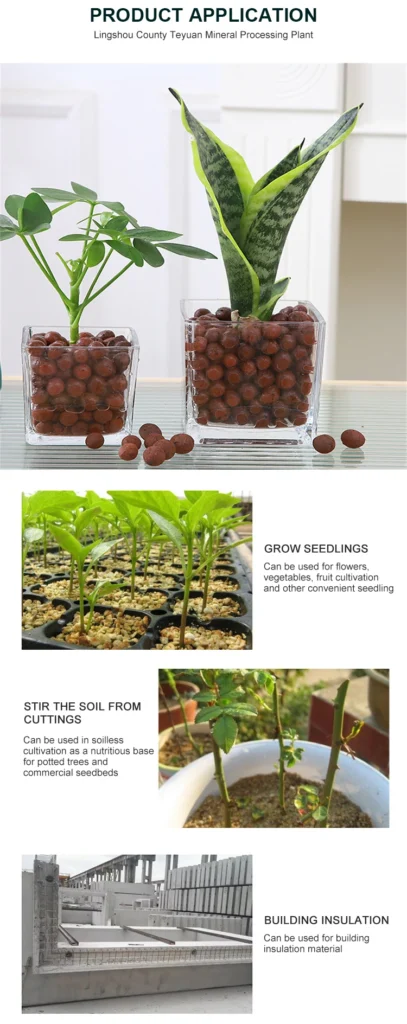In the pursuit of sustainable and high – yield vegetable cultivation, organic clay balls have emerged as a remarkable solution. These eco – friendly spheres are making waves in the agricultural and gardening communities.
Composition and Production of Organic Clay Balls
Organic clay balls are crafted from natural, organic – certified clay sources. The production process is free from synthetic chemicals and harmful additives. This ensures that the clay balls are pure and safe for vegetable planting. A recent report from an organic farming association highlighted that these clay balls are produced following strict organic standards, making them an ideal choice for health – conscious gardeners.
Physical Traits of Organic Clay Balls
They are lightweight yet sturdy, with a porous structure that gives them unique properties. Their smooth surface and uniform shape not only make them easy to handle but also contribute to a neat appearance in the garden. Different sizes are available, with smaller balls suitable for delicate vegetable seedlings and larger ones for more established plants. A gardening magazine featured a story about a gardener who used a mix of sizes for different stages of vegetable growth.

Drainage and Moisture Control in Vegetable Beds
One of the key benefits of organic clay balls in vegetable planting is their excellent drainage capabilities. They prevent waterlogging in vegetable beds, which can be detrimental to root health. A study by a horticultural research institute found that vegetables grown with organic clay balls had 30% fewer cases of root rot due to improved drainage. At the same time, they retain moisture effectively, providing a steady water supply to the plants.
Aeration for Robust Root Growth
The porosity of organic clay balls promotes enhanced air circulation around the roots of vegetables. Adequate oxygen is essential for root respiration and overall plant vitality. In a community garden project, vegetables grown with these clay balls showed more robust root systems compared to those in traditional soil. This led to healthier plants and higher yields.
Nutrient Retention and Slow Release
Organic clay balls have the ability to retain nutrients. They can hold on to organic fertilizers and release them slowly over time. This provides a continuous supply of essential nutrients to the vegetables. A commercial organic farm reported that by using organic clay balls, they reduced the frequency of fertilization by half while maintaining high – quality vegetable production.
Compatibility with Different Vegetable Varieties
These clay balls are highly compatible with a wide range of vegetable varieties. Whether it’s leafy greens like lettuce and spinach, root vegetables such as carrots and radishes, or fruiting vegetables like tomatoes and cucumbers, they can support the growth of all. A local farmers’ market vendor shared how using organic clay balls helped him grow a diverse range of vegetables successfully.
Laying the Foundation in Vegetable Gardens
In vegetable gardens, organic clay balls can be used to create a base layer. A bottom layer of larger clay balls can improve drainage, while a top layer of smaller ones can be mixed with soil or used as a mulch. This setup not only improves the growing environment but also adds an aesthetic touch to the garden.
Maintenance and Long – term Use
Maintaining organic clay balls in vegetable gardens is straightforward. They are durable and do not break down easily. However, periodic inspection is recommended to ensure they are free from debris and pests. In some cases, a gentle rinse can be done to keep them in optimal condition.
Cost – effectiveness in Organic Gardening
Despite being an organic and high – quality option, organic clay balls are cost – effective. They offer long – term value by reducing the need for frequent soil amendments and fertilizers. A home gardener in Texas calculated that using these clay balls saved her 20% on gardening costs over a year.
Environmental Sustainability
As an organic product, organic clay balls are environmentally friendly. Their production has a minimal ecological footprint, and they can be reused in subsequent growing seasons. A study on sustainable gardening practices praised the use of organic clay balls for their positive environmental impact.
In conclusion, organic clay balls offer a comprehensive solution for vegetable planting. Their combination of physical, nutritional, and environmental benefits makes them a top choice for both home gardeners and commercial farmers.

